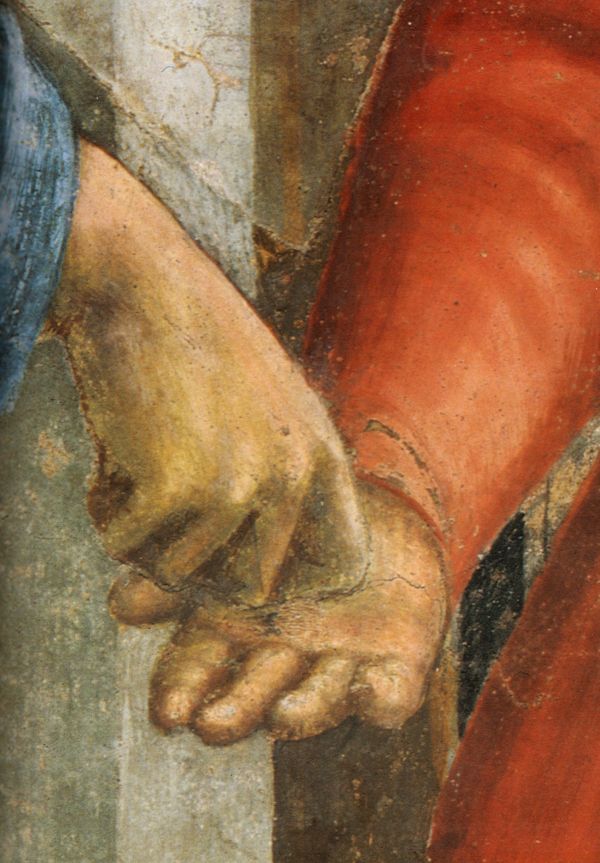Without mechanisms, nor obligations that do not concern us
(Mt 17:22-27)
Even the Jews dispersed in the Roman world paid an annual tax for the maintenance of the Temple, which in reality did not figure among the obligatory contributions provided for in the Torah (Ex 30,11-16).
Converts to the new Faith in Christ of Galilee and Syria wondered if they still had the obligation to continue paying the sum for the place of worship and the priestly class.
The amount due was accessible [equal to a couple of days' work].
Jesus expresses his opinion through an analogy.
Rome had granted the administration of Palestine to monarchs, princes and tetrarchs. Subjects were obliged to pay taxes, excluding Roman citizens.
The young Rabbi states: just as those who possessed the legal citizenship of Rome were exempt from the tributes imposed on the Jews by their rulers, so the sons [in the communities of Mt, Christians Jews] had to be exempt from the taxes relating to the Temple.
But it was perhaps appropriate to express an attitude of respect about a legal obligation.
From the tone and composition of the text, however, it seems that this criterion of loyalty to institutions has been grafted onto a previous saying of Jesus, concerning total freedom towards the Sanctuary.
He intended to replace it in vital terms: with his Person and that of his own intimates. By wiping out his artificial and external mannerisms.
With regard to the specific Christology of the passage, it is known: the Lord provides and "pays" for His friends (v.27).
In fact, the acronym for «fish» in Greek [«ichthys»: Iēsous Christos Theou Yios Sōtēr] has the meaning of Jesus Messiah Son of God the Savior. Symbol of the Faith.
In this way, the authentic commitment of the sons will be to manifest a Face of God absolutely different from that widespread in the mentality of the ancient and Mesopotamian East.
In fact, the Father doesn’t sit in a Cloud crossed by lightnings; He doesn’t crave the title of «Great» which recalls an idea of tremendous strength, terrifying power, disruptive speed.
No, this is not the ‘precedence’ of the divine man and of the Most High. He offers redemption and pays tribute for everyone.
Of course, Salvation is not an extrinsic mechanism, only vicarious. Redemption is Heart, not a “dress”.
The «Son of Man» does not take standard actions; he educates us: he sharpens our personal awareness, and that of our condition.
He does not do this out of paternalism, nor to cover us with moralistic accusations: he allows us to love, bypassing formalism in our relationship with the Father.
His Presence as a Lamb who offers all of himself - even his skin - challenges humanity and guides it to reflect on its reality, precarious even in the heart.
Conscience of incompleteness that can activate what matters: the path of Exodus, convinced, involving - starting from the Center of oneself, rather than from legal externalities.
Without fulfillments that do not concern us.
[Monday 19th wk. in O.T. August 12, 2024]












